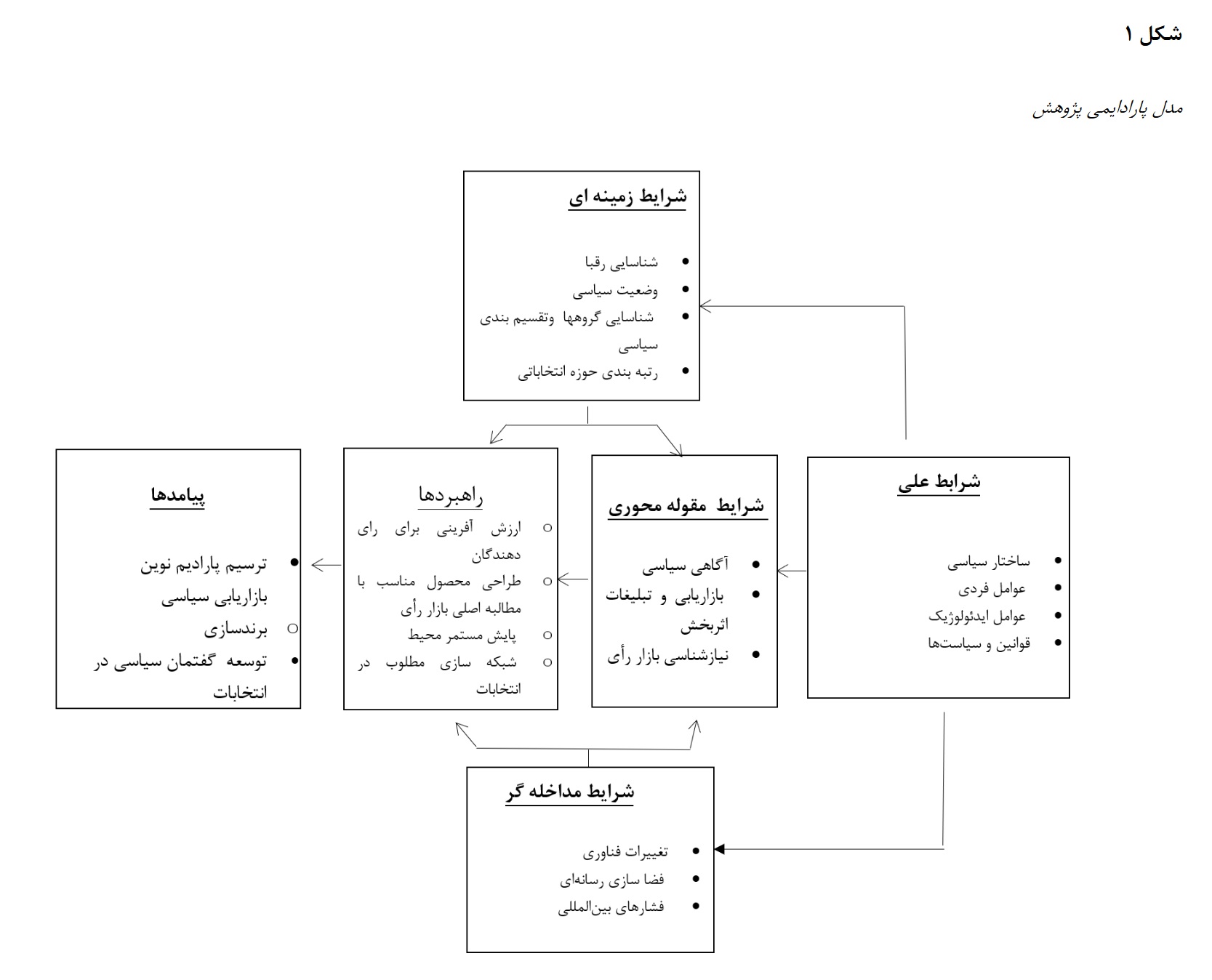The Political Marketing Model in the Presidential Elections of the Islamic Republic of Iran
Keywords:
Marketing, Political Marketing, Elections, Grounded TheoryAbstract
The present study was conducted with the aim of providing a political marketing model in the presidential elections of the Islamic Republic of Iran. The research method used was qualitative and based on the grounded theory strategy. For data collection, in-depth interview tools were utilized. The target population consisted of academic experts, senior managers, and experts in political fields who were involved in the processes and decisions of political marketing. Through purposive sampling, theoretical saturation was achieved after 15 in-depth interviews. In the grounded theory approach, this research went through three stages of open, axial, and selective coding, resulting in 22 general categories and 105 subcategories, organized into a paradigm that includes causal conditions, contextual factors, intervening conditions, central categories, strategies, and outcomes. The results indicated that political marketing in the presidential elections of the Islamic Republic of Iran is realized through causal conditions (political structure, individual factors, ideological factors, and laws and policies), contextual factors (identifying competitors, understanding the political situation, identifying groups and political segmentation, and ranking the electoral domains), intervening conditions (technological changes, media framing, and international pressures), central categories (political awareness, effective marketing and advertising, and understanding the needs of the voting market), strategies (value creation for voters, designing appropriate products aligned with the main demands of the voting market, continuous environmental monitoring, and optimal networking in elections), and outcomes (shaping a new paradigm of political marketing, branding, and the development of political discourse in elections).
Downloads








